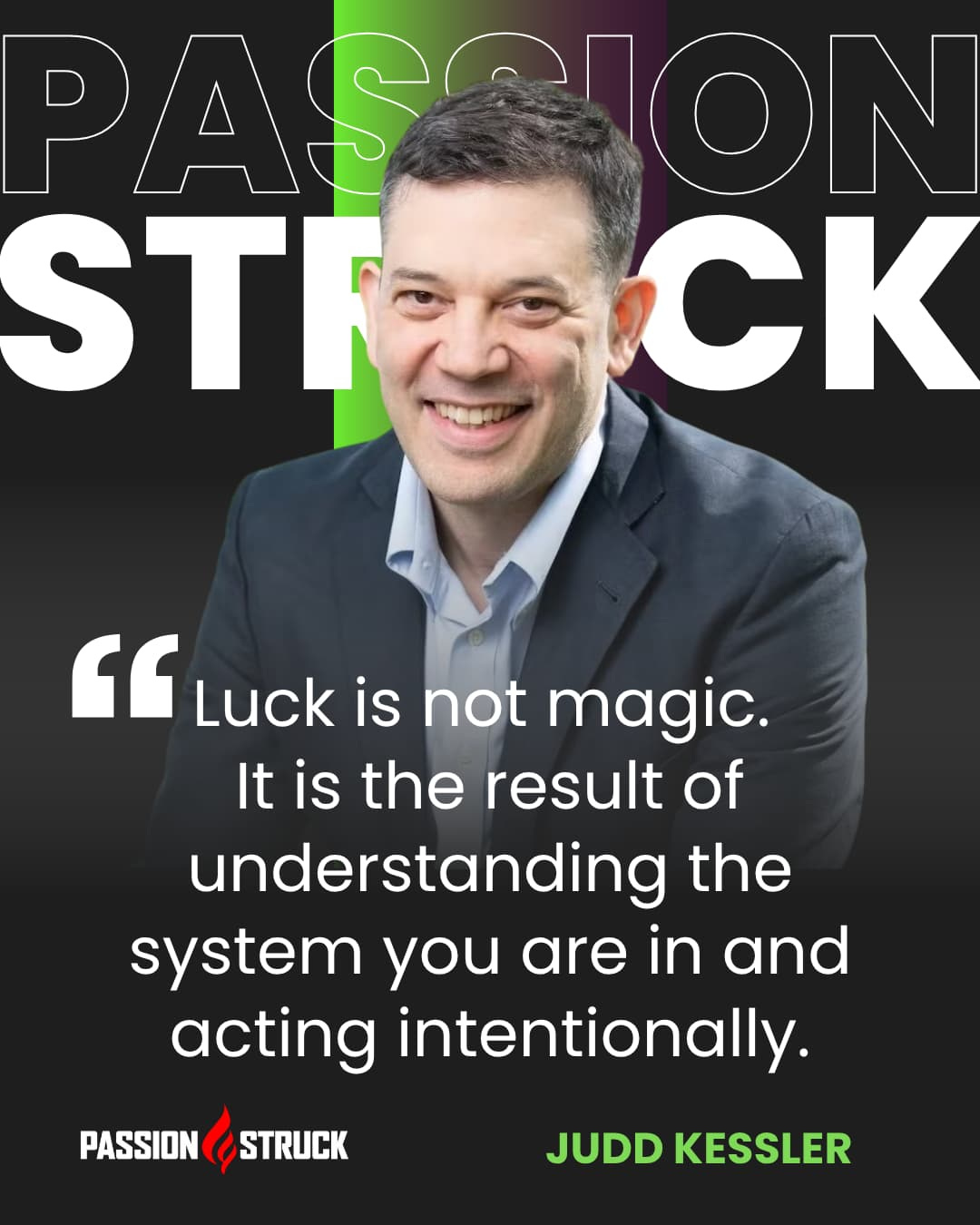You know that friend who always seems to be in the right place at the right time? The one who “accidentally” meets their future business partner on a delayed flight, or stumbles into a perfect career pivot like they’ve got a cosmic GPS?
Yeah. We all have that friend.
And deep down, we tell ourselves, “They’re just lucky.”
But here’s the uncomfortable truth:
Most of what we call luck is actually structure we haven’t learned to see yet.
Let that sink in.
The Myth of Luck
We love the mythology of luck. It’s comforting. It tells us we’re not at fault when things don’t work out. It gives us someone (or something) to blame: fate, timing, Mercury in retrograde, the fact that your high school guidance counselor had the career vision of a houseplant.
But in reality, luck isn’t a magical force sprinkling fairy dust on the chosen few.
It’s more like a game with invisible rules. And some people have learned how to read the rulebook.
Case in point: economist Judd Kessler once sat in a packed auditorium full of anxious New York parents waiting to learn how kindergarten placement worked. Everyone was panicking. He was chill. Why? Because he’d studied the algorithm that actually determines placements.
While everyone else was scribbling furiously, hoping luck would swing their way, Judd was calmly navigating a system he already understood.
To everyone else, it looked like luck.
To him, it was just Tuesday.
Your Intuition Isn’t Woo — It’s Wi-Fi
The second piece of the puzzle is intuition.
I know, I know. “Intuition” sounds like something you’d find on a $12 crystal in Sedona. But stick with me.
As intuitive expert Amy Leigh Mercree explained in our conversation this week, intuition is basically a biologically generated electromagnetic field—your personal Wi-Fi network—constantly sending and receiving signals.
Ever walked into a room and just knew something was off before anyone said a word? That’s your intuition pinging you.
Doubt pulls us inward to question.
Intuition pulls us outward to detect.
The problem is, most of us have our notification settings on mute.
Stop Chasing Gold. Find Your Silver.
Here’s where strategy enters the chat.
We’re raised to chase “gold” — the Ivy League job, the Big Five publisher, the dream opportunity. And everyone else is chasing the exact same damn thing.
It’s like trying to merge onto a clogged highway at rush hour and wondering why you’re not moving.
Meanwhile, just off to the side, there’s often a silver path — quieter, less crowded, but just as meaningful.
When I was shopping my children’s book You Matter, Luma to big publishers, I kept hitting walls. Rejection after rejection. I could’ve kept bashing my head against the golden gates. Instead, I looked sideways — and found Morgan James Publishing, a smaller press with a strong track record. That “silver” move made the dream real.
Silver isn’t settling. It’s strategy.
Luck Favors the Designed
If you zoom out, you start to see the pattern:
Structure: Luck hides in systems you can learn to map.
Intuition: Your internal radar detects the stuff your brain can’t articulate yet.
Strategy: Silver paths open doors while everyone else is fighting at the front gate.
When you combine those, something shifts.
Luck stops being a coin toss.
It becomes a landscape you can see, sense, and navigate.
A Quick Practice for the Week
Take 10 minutes to map one “lucky” area of your life.
Who are the gatekeepers?
What hidden rules shape outcomes?
Where is your intuition whispering, “Look closer”?
What silver paths are sitting quietly on the sidelines?
Because the truth is:
Luck isn’t waiting to choose you. It’s waiting for you to learn its design.
Want the Framework?
Want to go from “Huh, that’s interesting” to “Holy crap, I’m actually doing this”?
This is where the nerdy fun begins.
Paid subscribers get access to the Companion Workbook for this episode — a step-by-step guide to map hidden markets, tune up your intuition radar, and start designing your own damn luck.
Plus, you’ll get ad-free access to the full episode (because you deserve less noise and more signal).
If you’re ready to put this into practice, grab the free Companion Workbook — available to paid subscribers. It walks you through mapping hidden systems, tuning your intuitive radar, and applying the “silver strategy” to real decisions.
Up Next on Passion Struck
Next week, we’re turning to a different kind of power: the power to say no. I’ll be joined by Sunita Shah, author of Defy: The Power of No in a World That Demands Yes.
It’s a conversation about boundaries, agency, and the quiet strength of refusal. You won’t want to miss it.
Download the Ad-Free podcast episode.
Final Thought
Luck isn’t random.
Intuition isn’t woo.
Silver isn’t settling.
They’re just tools you haven’t fully picked up yet.
— John




